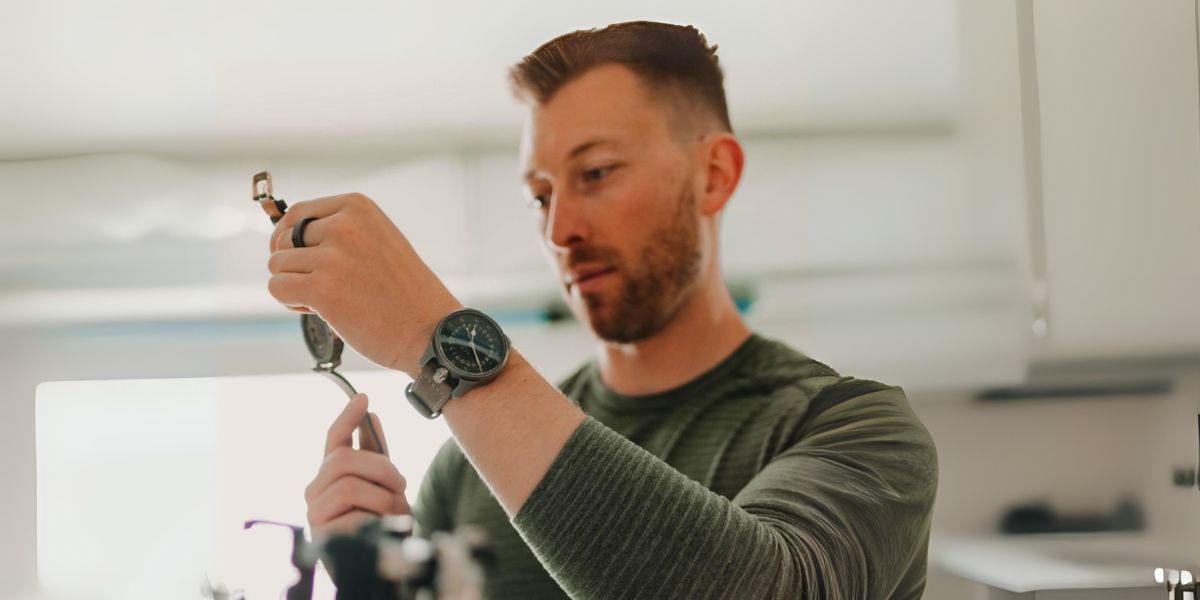By Staff
Thanks largely to Omicron, 2022 got off to more of a whimper than a bang, though it appears now that most of the country is indeed returning to normal. Consumers, as usual, are leading the way. Data shows that people have returned to restaurants, airplanes, movie theaters and shopping malls faster than offices–so far. With major employers like Microsoft calling the troops back to their desks, however, this is about to change. But how, exactly?
Lauren Winans, a corporate HR professional who founded her own consulting firm a year before COVID struck, says that while some pandemic practices are here to stay and some will probably disappear, most employees are probably headed back to the office soon, if still yearning for clarity on a number of important issues.
Flexibility
One of the biggest questions that workers have is if they may continue working remotely. For some, working from home is not just a comfort, but a necessity, primarily due to health and childcare issues. Winans, whose team has worked for large companies like Citi and Netflix, thinks that remote as a workplace flexibility option is here to stay. “It may not apply as broadly as it did during the height of the pandemic, but it is not going away entirely,” she says.
Sustainability
Back in June, a group of Apple employees submitted a letter to the company’s CEO Tim Cook. They were demanding a larger say in the back-to-office decision-making process, and the tone was decidedly negative. Writing that COVID had created an irreversible “new normal,” the employees alleged that many of their colleagues had quit in anticipation of returning to the office and that, without extending hybrid work arrangements, many more would follow. According to the letter, “Without the inclusivity that flexibility brings, many of us feel we have to choose between either a combination of our families, our well-being, and being empowered to do our best work, or being a part of Apple.”
Cook has made it clear that he wants to see his employees back, if possible. Other employers have expressed a similar desire recently, from investment banks like Morgan Stanley and Goldman Sachs to Meta Networks (formerly Facebook) though their tone varied dramatically. The banks said employees should come back or expect to lose their jobs while Meta’s founder and CEO, Mark Zuckerberg, teased a virtual office that he said will make hybrid work possible–in ten years or so.
Winans says that most employers are trying to strike the right balance. “Hybrid will not replace remote, but will often be used as a compromise between employers and employees in organizations where onsite workers are preferred to remote workers,” she observes. “Remote work is sustainable when expectations are clearly defined, leaders support the remote working model, and there are opportunities for in-person gatherings and team building throughout the year.”
Environment
One area where employees and employers share the same concerns is personal safety. After all, the virus has become more contagious, not less, since offices started emptying out two years ago. A nationwide private sector vaccine mandate was rejected by the Supreme Court earlier this year, so it’s largely up to companies and their leaders to figure out what a “safe” workplace means. Winans expects that a raft of safety measures will be in place when most offices reopen, including mask requirements, vaccination records requests, social distancing, enhanced cleaning measures and instructions to stay home when exhibiting cold symptoms (instead of toughing it out to save that vacation day). She thinks that in-person meetings may be limited but that real estate footprints may also be smaller, resulting in office set-ups that feel more hotel than hive.
“In general, large, open air spaces will be preferred to small, cramped ones,” Winans says. “Many locations that once had onsite services like cafeterias, daycares, and gyms may opt to shut those down and repurpose funds on less risky, lower liability employee benefits and perks.”
Some employers, like Citi, are already creating suburban hubs instead of forcing employees back to a single HQ, which would necessitate squeezing into small elevators and crowded workspaces. Spreading out, Winans says, allows employees to come into a physical space when needed to access special equipment or systems, while employers save on lease and utility costs.
Mobility
Employers, she adds, are well aware that back-to-the-office is happening in the midst of what has come to be known as The Great Resignation, a phenomenon that began last April in which four million (or more) workers have quit their jobs every month. Winans prefers to call this mass quitting “The Great Reassessment” because the data shows that it’s more about reassessing priorities and shifting careers than dropping out of the workforce entirely. “I don’t think it is permanent, but I do think it is more commonplace to frequently change jobs or careers as personal or lifestyle choices evolve,” she says. “ Where it might not have been acceptable in the past, it is now part of how employees think: there is always another opportunity that can be a better fit for me and my family.”
Still, Winans thinks that the workforce has permanently shrunk by as many as several million workers. Between baby boomers’ early retirements, entrepreneurs getting the nerve to start their own business, the ever-increasing ways money can be made via the Internet, and the rise of the social media influencer, she says that the nation’s official workforce won’t be increasing to pre-pandemic levels any time soon–if ever.
Clarity
Ultimately, Winans says that the employment picture won’t be determined by COVID but by individuals wanting to work for companies that fit their lifestyle and values. “Employees are looking for transparency,” she observes. “They want to have a clear understanding of what an organization stands for, what the culture is like, what leadership’s vision is, and how their role in the company will make an impact. Of course they are also looking for fair and equitable compensation, flexible schedules, remote work opportunities, and comprehensive benefits that can be personalized for their particular needs and life stage.”
None of this may sound particularly new. What’s changed is that, over the past two years, employees have adapted to a new set of rules that are not entirely written, and may not be until both employers and employees have adapted to the new normal. During the pandemic, workers’ perceptions and expectations have shifted, sometimes dramatically. The Great Return will provide a reality check for a workforce that’s so far proven willing to take chances in the pursuit of its goals.
“Today’s employees are looking for the “right” job, not just any job,” Winans says. “We’re seeing this mindset across all levels of the organization, from entry-level to the C-suite.”








